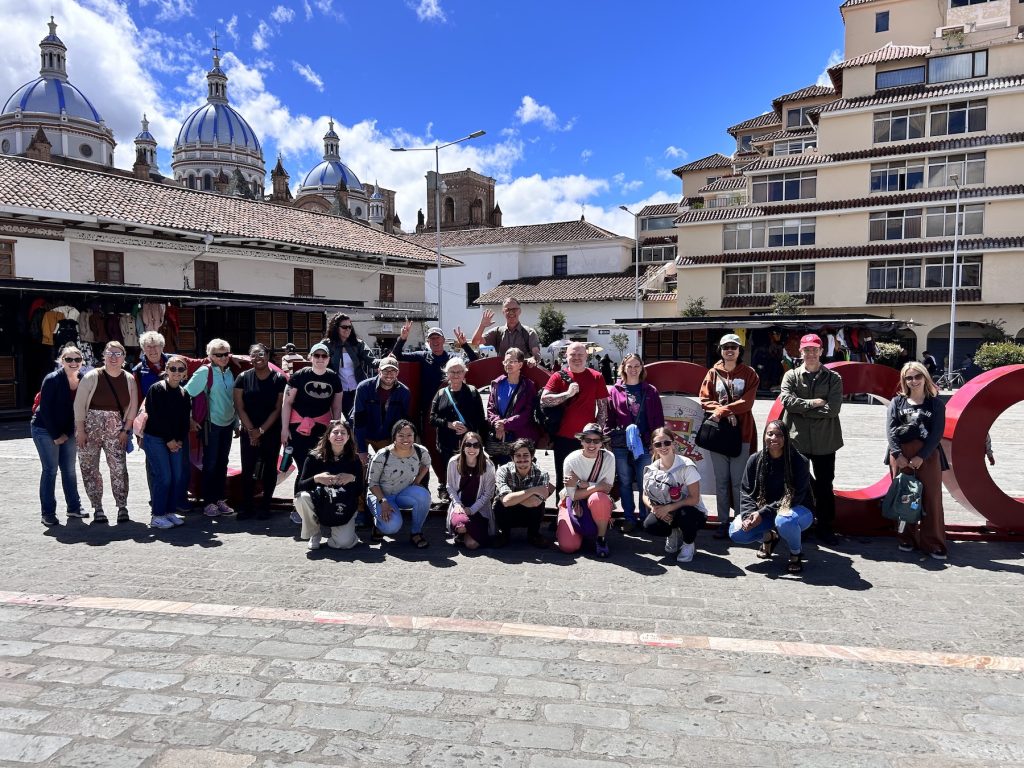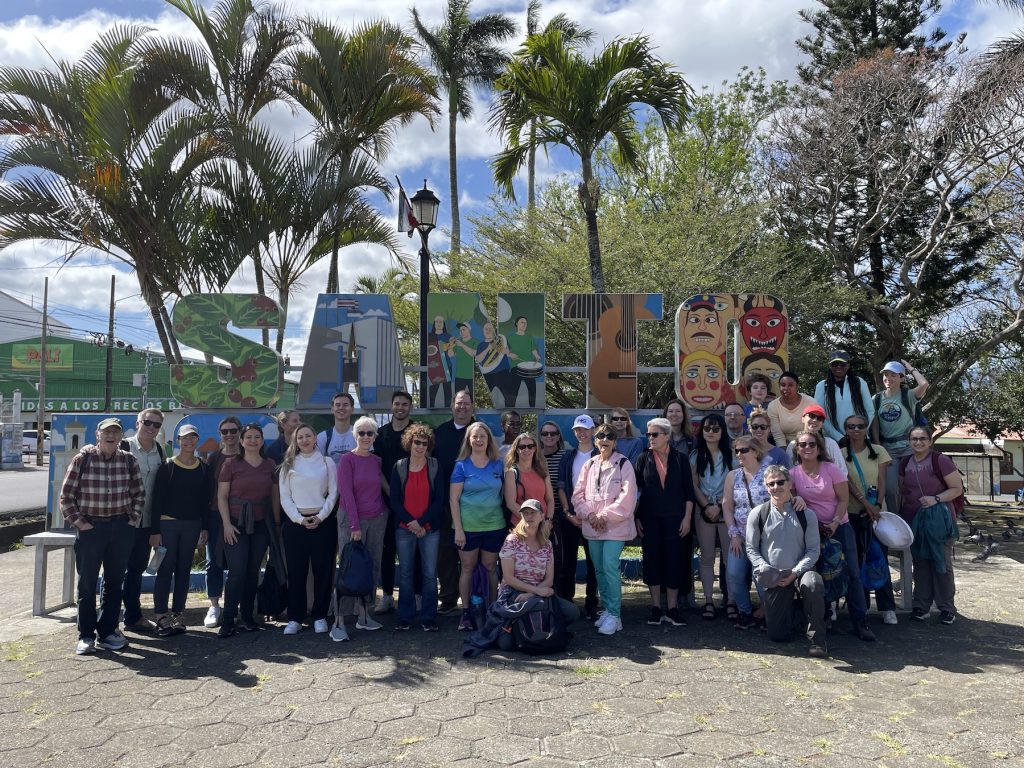International travel to the developing countries in Central America offers amazingly rich opportunities to explore the tropical beauty of the Americas that you don’t see in other parts of the world, but it comes with inherent risks that you should be aware of.
My family just got robbed burglarized in Costa Rica on a weekend trip. We were staying in a luxury home on the beach, and in the amount of time that it took us to walk 200 meters to a nearby restaurant and have dinner (1.5 hrs maybe), we lost EVERYTHING for our 6 week summer of Spanish immersion programs. This is the first time in 15 years of travel that we’ve been robbed, but it was a doozy!
We’ve recounted our steps, second-guessed everything we did that night, wished we had done things differently; but at the end of the day we’re still missing the big stuff and all the stupid stuff that we didn’t realize was gone until we went to grab it. There’s no question that we’ll continue traveling to Central America and continue sharing this amazing part of the world with students and professionals who want to improve their Spanish, but we’ll take some extra time to share safety tips and implement new safety measures from here on out.
Not long ago, I also recorded a video with our onsite program coordinator on Personal Safety in Central America that highlights tips to stay safe, but this post is a little different. Our loss is your gain, I’m getting more detailed in assumptions and practices that will keep you and your belongings safe. If you’re traveling to Central America any time soon (whether it’s a “dangerous country”or not), please read through every word of this post. There is a prevailing assumption within the local culture that robbery happens because you don’t take appropriate measures to keep your stuff safe. I grew up in a conservative home in the USA, so I don’t share that perspective at all, but I’m seeing the wisdom in living according to that assumption while I’m traveling and working in Central America.
As we’ve told our story to local friends, we’ve been surprised to hear that almost everyone has a robbery story (local Costa Ricans and Americans living here), and they feel like petty theft is on the rise. So, as you’ll see most of these recommendations have to do with preventing petty theft, but some are related to personal safety as well. No need to be scared about your upcoming trip, just remember that an ounce of prevention is worth a pound of cure!
Simple tips to keep you and your property safe during your trip in Central America:
- Don’t be alone after dark. It’s definitely okay to be out after dark, just don’t go alone (especially if you’re a woman). 99 times out of a 100 you would be fine, but going out with a friend is a better plan. If you have to go out, and you don’t have anyone to accompany you, just make sure to grab a taxi to get where you need to be.
- Don’t be alone on deserted roads (for exercising, etc). There is nothing more tempting to go for an early morning run or walk on a quiet road, I get that. However, it’s best to keep those lonely roads for group exercise and stay in more densely populated areas when you have to work out alone.
- When you take a taxi, make a note of the taxi number. Legitimate taxis usually have a number on them that identifies them with the local taxi association. Make a note of this number (usually on the door or hood of the vehicle) as you enter the cab. This is helpful if you accidentally drop or leave something behind. You’ll have a better chance of locating your lost items again with the taxi number.
- Double check the taxi and bus before you get off. It’s easy to drop things during the hustle and bustle of getting around town like a local. Take an extra 15 seconds to check your seat and the floor near your feet to make sure you didn’t drop anything important before you get out of your cab or get off your bus.
- Always lock doors or gates (and arm alarms if possible) at night and while you’re away. Think about this for a second; the gates and alarms at your place exist for a purpose. If they weren’t needed, they wouldn’t be there. So, use them to their full potential. Better safe than sorry!
- Keep your belongings in a safe if available. No explanation needed. Take 10 minutes to figure out the safe and use it. I still haven’t stopped kicking myself for not slipping my sleek custom order Mac Book Pro and my Canon Rebel EOS T5 camera into the safe before going out to dinner a couple weeks ago.
- Don’t take more than you need. After the dust settled from our recent robbery, my wife and I realized that we had duplicates of many things on our weekend trip. From silly things like shaving cream to important things like computers and credit cards – we could have cut our losses if we weren’t doubled up on so many things.
- Back up your electronics and make sure all data is saved in a separate location just in case you need to replace your device. I am so thankful for the many cloud-based services that we use lately, because none of that data was lost. However, I did have 3 weeks worth of locally saved projects and files that I hadn’t backed up before our computers got stolen. It’s one thing to lose your things, but it’s salt in the wounds to have to waste time recreating work that you could have saved.
- Use a copy of your passport, not the real one. Thankfully we didn’t lose our passports during this robbery. We’ve been in the habit of carrying copies in our wallets for some time now – sure makes things easier to not have to figure out how to get an emergency passport issued at your local US Embassy.
- Focus on your debit card, not your cash or the receipt at the ATM. Over the years several clients have had their debit cards eaten by the ATM machine. They successfully got their cash, but they were so focused on putting it away perfectly into their wallets that they didn’t retrieve their debit cards from the machine in time. In areas that have high rates of petty theft, the ATM machines are programmed to swallow your card back in if you don’t retrieve it within 5-10 seconds. Of course you can get your card back if you can speak the language and you’re available to return during business hours…but it’s a ton of hassle and totally avoidable. Just stuff your money and receipt into your pockets and focus on getting your card. You can organize your money just how you like after you get back to your hotel room.
- Never leave your bag, backpack or other personal items unattended. I don’t know about you, but I walk away from my computer and work bag at my local coffee shop all the time. I may have to use the restroom or grab something from my car real quick, but it’s not a real concern. In Central America, however, you never want to have your eyes off your stuff nor be separated from it … EVER! This is going to sound crazy to you, but you don’t even want to drape things off the back of your chair while you’re sitting down at the restaurant. Keep your personal belongings on your lap, or between your feet, at the table and no one will be able to slyly slip it away from you.
- Get a Google Voice number (or buy Skype credits) in case you need to call home. WiFi is pretty common these days, so you can be relatively sure that you’ll be able to get on the internet if needed. But if you need to call home you’ll need access to the American phone system. Skype, Google Voice, and What’s App provide ways to call American phones while abroad.
- Keep valuables out of sight. Keep your bags & backpacks away from windows and don’t leave computers, tablets, wallets, and other valuables out in plane sight in hotel rooms or vehicles. Most crimes are crimes of opportunity. Therefore, if you take away the opportunities, it stands to reason that fewer crimes will happen to you.
- Carry only small amounts of cash. You may need to have a large amount of cash for your trip, but you surely don’t need all of it in your wallet at all times. Keep your cash locked up in your hotel room’s safe, and just take what you need on your day to day excursions.
- Buy travel insurance. Travel insurance is priced based on your trip cost and it usually works as reimbursement coverage for medical expenses, lost/stolen baggage and flight delays. Make a couple of copies of your travel insurance policy and with you and keep them in separate places just in case you lose one.
- Review your bank account on occasion while abroad. It’s good practice to always be present when someone is swiping your card abroad. It may seem neurotic, but in certain establishments you may have a crooked server waiting on you and they may steal your card information without you knowing it. We try to make a point of paying in cash or being present during the swipe to make sure all is above board. Either way, make a note to check your bank account a few times during your trip to make sure that there are no charges on your card that you’re not responsible for.
- Stay away from the animals you don’t know. One of the biggest temptations that animal lovers face is to pet that dog that seems so cute and cuddly. In most Central American countries, animals are not seen as a part of the family like they may be in your home. Most pets are utilitarian (guard dogs, doorbells, etc), and they may be let free to roam the street during the day. Just stay away – nothing good can come of approaching one. Even a small bite or scratch that breaks the skin will adjust your plans for the day and likely start you thinking about rabies.
- Have a plan for scaring off dogs when out walking or exercising. In Costa Rica we often come across packs of dogs in the street when we’re out on runs. They get yippy and run after you a little bit, and it’s annoying, but we rarely have real problems. Usually all it takes to get them to run away is to stop, kneel down like you’re picking up a rock and they scurry off.
- Keep your wallet and phone secure. When you’re in tight spaces and full public places, it’s a good idea to button your back pockets or move your wallet to your front pocket. Women will want to carry their purses at their abdomen instead of on their sides or back. It’s too easy to get bumped into and have your valuables go missing by your neighborhood pick-pocket.
- Keep your alcohol under control. When you drink too much you don’t think clearly. And when you’re not thinking clearly it’s easy to get taken advantage of. Things happen quickly, and even when you’re surrounded by the company of your friends (drinking or not) it’s easy to feel safer than you are. For example: I had a young attractive female client explain to me why it was a good idea for her to jump into the car of another man on a Saturday night (whom she had never met before) to get a ride to the next bar. Thankfully nothing happened to her, but doesn’t that sound like a stupid idea? You’re always better off when you are able to think clearly, so keep your alcohol under control.
Central America is home to amazing wildlife, beautiful landscapes, wonderful adventures, and it’s a great place to learn Spanish on immersion programs. But you need to be careful because it’s also easy to be taken advantage of when you’re in places that you’re unfamiliar with and have little experience navigating day to day life in the various cultures represented. This post is not meant to scare you or discourage you from traveling to this beautiful part of the world, rather to give you some specific tips to stay safe on your upcoming trip.
If you’re traveling with your family to Costa Rica or anywhere else in Central America, here is a related post on Traveling safely with your family.





Pingback: Costa Rica Safety: Avoiding problems on your trip